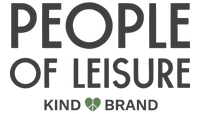We love spotlighting people who apply our motto #liveconsciously in their everyday lives, especially when it involves helping others do the same. This week, as part of our Sustainable Influencer Series, we’re getting to know Melody Moradi Ahadian, a certified preventive nutrition coach who is passionate about teaching people how to heal their bodies from the inside out. She has worked with countless individuals and corporations, teaching them about preventing chronic diseases like diabetes, inflammation, obesity, high blood pressure and more with a holistic, plant-based approach.
How did you begin your career as a nutritionist?
Growing up in a family of great cooks and foodies, food and cooking was a natural part of my upbringing. Though it wasn't until I got sick that I turned to food as medicine. In my mid 20s I developed severe and debilitating stomach pains that crippled me on daily basis. After two years and visits with several Doctors, there was still no resolution. I decided to do a trial-and-error experiment on myself where I removed and added foods to see how they would make me feel. It took almost 1 year but after testing and experimenting, I healed myself through food. My stomach pains completely dissipated. I was able to eat and live a normal, actually improved, life again. This eye-opening and liberating experiment catapulted me to help others in pain. And thus started my journey as a dietitian!
How does your focus of nutrition differ from other consultants?
I focus on food as medicine -- food that is capable of preventing and reversing disease. By focusing on plant foods that have anti-inflammatory, anti-oxidant, anti-cancer capabilities, and limiting foods that have damaging effects on our bodies, I assist clients in leading longer, healthier, and happier lives.
What is the most common issue your clients suffer from in relation to their diet?
The most common issues I see are: insufficient intakes of plant foods (fruits, vegetables, whole grains, legumes) and excessive intakes of animal proteins and fats. As a result, most of the individuals I see are plagued with type 2 diabetes, high blood pressure, high cholesterol, and inflammation.
How important is organic, sustainable food for our health?
In my opinion, organic food and sustainable food are two separate and independent topics.
Organic food is food that is grown without the use of pesticides, synthetic fertilizers, genetically modified organisms, sewage sludge, or ionizing radiation. Organically raised animals do not take antibiotics or added growth hormones.
Sustainable food is food that sustains us and our planet -- keeps the Earth and us alive. Over the past few years, research has revealed that the animal agriculture sector is the most unsustainable food source, generating more greenhouse gas emissions than driving cars. Plant agriculture, in turn, is much less damaging, generating around 1.5 trillion more pounds of "product" than animal agriculture, while using 115 million acres less land.
So, organic doesn't always mean sustainable. Most animal foods, organic or not, are laden with cholesterol, saturated fat, heme iron and natural growth hormones - all known to lead to inflammation and disease - and part of the unsustainable animal agriculture sector.
When it comes to organic, I tell clients to pick organic produce that is listed on the Dirty Dozen list (www.ewg.org), and go with conventional for produce listed on the Clean Fifteen list. These are fruits and vegetables that are tested yearly, and categorized by highest and lowest pesticide content, respectively.
And when it comes to sustainable food, I tell clients to fill most of their plates with plant foods (organic if they fall under the Dirty Dozen) to fuel and nourish their bodies while nurturing and caring for our Earth.
What tips can you give on transitioning to a sustainable diet?
Start slow - I recommend setting 3 goals a week. Start including fruits and vegetables that you enjoy eating. Slowly add in beans and lentils for protein, and then nuts and seeds. Small changes add up, but don't overwhelm you.
How important is sustainability on a socioeconomic level?
Currently, unsustainable foods (e.g. beef and dairy industries) are highly subsidized by the government, making it much cheaper to buy a steak or a gallon of milk versus fresh fruits or vegetables. If this was reversed and sustainable foods (i.e. plant foods) were more subsidized by the government, more people from different socioeconomic backgrounds would be able to afford plant foods and incorporate them into their daily lives. Thus, by making sustainable foods more available to all socioeconomic levels, we would improve our health and our planet's health.
For more information on preventative nutrition coach Melody Moradi or a consultation, check out her site here!





